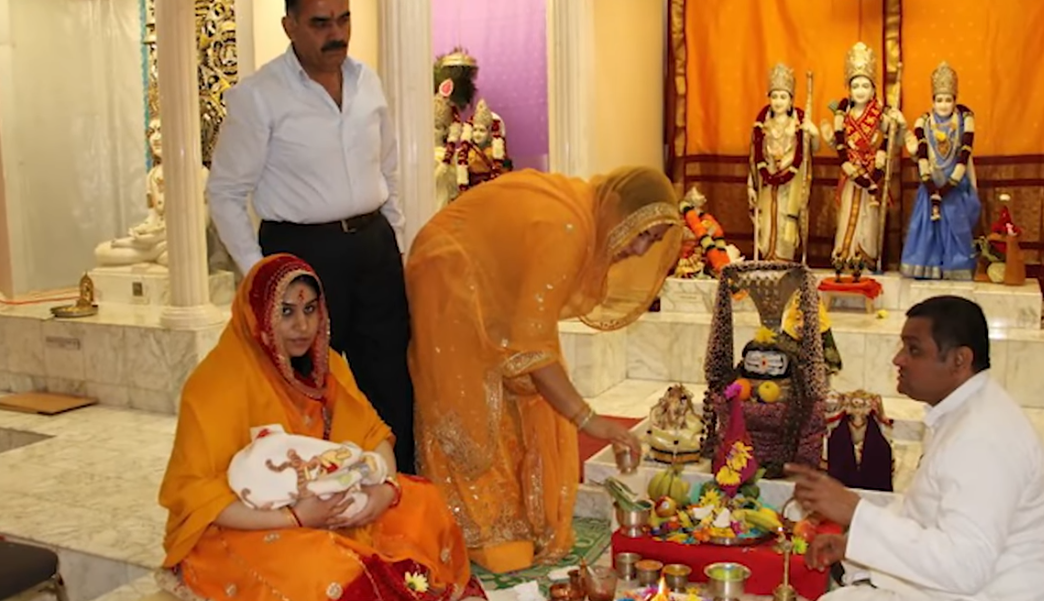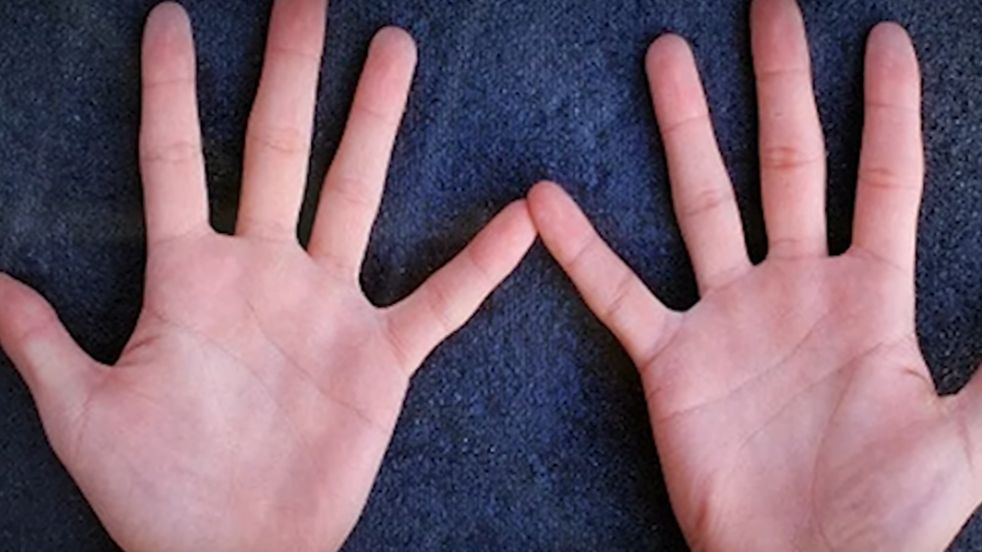Have you ever thought that a hand can also be stigmatized? This is a reality in many places around the world. In India, using the left hand to eat is a taboo, seen as disrespectful and unclean. And it's not just in India; from the Middle East, Africa to many regions in Asia, the left hand has historically been labeled as dirty, impure, and forbidden for important tasks such as eating, greeting, or offering to deities. So why is that? Because both are human hands, yet one is revered as the right hand, while the other is scorned as the left hand.
The story actually begins with something very ordinary, which is using the restroom. In many areas for hundreds of years, toilet paper has become a familiar item. But in many other parts of the world, such as South Asia, the Middle East, and Africa, paper was once a luxury. People couldn't always have paper to clean themselves, while water, cloth, and often would be convenient to have in many places. So instead of using paper, they chose to wash with water or, in some places, even use sand. But which hand should be used to wash with water? The answer has been predetermined for ages: the left hand. It became the cleaning tool associated with dirt. Meanwhile, the right hand is kept clean for eating, shaking hands, and greeting. Thus, over thousands of years, society has formed an unwritten convention.
The left hand is dirty, the right hand is clean.

For convenience, imagine a traditional Indian family. In the bathroom, they always have a Lota, a small water pot made of brass or plastic. After addressing their needs, they use this and the left hand to clean themselves. When going outside, the right hand is assumed to be the clean hand for further activities, while the left hand is already dirty. This practice has been repeated from generation to generation and gradually became a cultural norm. People don't need scientific reasons; they just know that it is correct. If it were only about hygiene habits, perhaps the left hand would only be considered slightly dirty. But when religion enters this narrative, it is elevated to sacred taboos.
In Hinduism, the hand is not only a tool for grasping but is also viewed from the perspective of cosmic and spiritual symbolism. Hindus believe that the universe is composed of two opposing sides: purity and impurity, light and darkness, order and chaos. In that system, the right hand is always associated with the good side. It symbolizes purity, wisdom, and divine assistance. In contrast, the left hand is associated with the bad side. It represents impurity, filth, disorder, and the lowest aspects of human life.
In worship rituals, this rule is maintained very strictly. When offering gifts to deities, when sprinkling holy water, when distributing items to believers, everything must be done with the right hand. The right hand is seen as a bridge between humans and the divine, and any intervention from the left hand is considered to defile the ritual. This distinction is not only customary but also a part of Hindu philosophy regarding cosmic order, about the sacred laws that humans must adhere to.
In Islam, the perception of the right and left hands is even stricter as it is clearly defined in the Hadith. These are teachings and actions passed down from the prophet Muhammad. These texts repeatedly emphasize that one should eat with the right hand because the devil eats with the left hand. This makes the right hand a standard in Islam, not just a normal social custom.
According to Islamic belief, the right hand is the hand for good and honorable deeds. Eating, shaking hands, receiving gifts, exchanging valuable items. The left hand is associated with impurity, using the restroom, handling waste, or menial tasks. This distinction is doctrinal, meaning it is not merely based on hygiene habits but also reflects the belief of Muslims that humans need to maintain a clear distinction between clean and dirty, between good and evil, between the right hand and the left hand. Even in the Bible, the right hand often appears as a symbol of grace and power sitting at the right side of God.

Meanwhile, the left hand often symbolizes darkness and evil. Thus, not only in India or the Middle East but also in ancient Europe, the left hand was not highly regarded. So when you have hundreds of millions of people believing that the left hand is dirty, it automatically becomes dirty. You may not be imprisoned for eating with your left hand, but you will be looked at differently by society. For example, in India, if you enter a small shop and hand over money with your left hand, the seller may hesitate or even refuse to accept it. In the Middle East, where there are Muslim countries, shaking hands with the left hand is almost a serious offense, akin to showing disrespect to the other person.
In many regions of Africa, if you eat with your left hand during communal meals, others will immediately leave the table, considering you have contaminated the entire meal. Society, through looks, glances, and whispers, has made the left hand feel out of place.

Another important reason is that the majority of people are right-handed. Statistics show that on average, nine out of ten people are right-handed, and only one is left-handed. In a world where the majority follows the norm, the minority is often seen as unusual. This perspective has only recently changed; previously, it was quite strict. Many parents dislike it when their children eat with their left hand or write with their left hand. Even in Vietnam, it is the same. Historically, left-handed individuals were sometimes associated with negative traits. They were seen as omens, considered possessed, or even forced to switch to using their right hand.
In Europe, during the Middle Ages, left-handed children were often forced by teachers to practice writing with their right hand, as if to cure them. Even language reflects this bias. In English, "right" means both "correct" and "right." In contrast, "left" comes from an old word "left" meaning weak. And this is interesting in Latin as well. In Latin, the word "sinister" originally meant left hand, which later became associated with bad omens or evil. Thus, even language has deeply imprinted biases into human consciousness to the extent that we almost default to seeing the left hand as wrong and the right hand as right. However, in life, people cannot always use the right hand normally.
If in places strict about the left hand, what happens if the left or right hand is injured? In a society that considers the left hand dirty, such as India, the Middle East, or many regions in Africa, an injured or damaged left hand does not suddenly become clean. People still maintain the belief that the right hand symbolizes purity, cleanliness, and reliability, while the left hand remains associated with impurity. However, in practice, when there is no other choice, people must be flexible, and society often shows more understanding, considering it an exception rather than an offense. If the left hand is in a cast, broken, and cannot move, people will often shift hygiene tasks to the right hand. It sounds contradictory, but it is a necessary choice because there is no other hand available.

To avoid contaminating the right hand, many people use additional tools such as bidets or water scoops. In modern cities with bidets, this has become easier, almost without needing to touch the hand directly. Thus, the right hand is still considered temporarily acceptable in unavoidable situations, and people will not view it as a negative point. In Islam, there is a saying that Allah does not burden a soul beyond its capacity. This means that if you cannot adhere to traditional rules due to health or injury reasons, just keeping clean and being sincere is enough.
It is worth noting that even when you use the right hand to do what the left hand does, people still see it as a temporary exception and only temporary. Once healed, everything returns to the old order. The left hand continues to be associated with hygiene, while the right hand retains its noble role in eating, religion, and communication. Culture can be flexible, but it never completely changes its roots.
